Tipping, an integral part of service culture, began as an expression of gratitude for a job well done. However, as tipping norms have evolved, they have mostly become an obligatory addition to the bill. More recently, especially since the pandemic and the advent of pre-populated gratuity screens, tipping has worked its way into non-service industries, even prompting the concept of tipflation, the increased rates that people are now expected to tip at restaurants and for other goods and services.
We can all agree, exceptional service deserves recognition. Tipping contributes to a living wage for those in the service industry and, in turn, helps small businesses keep good employees. If someone goes above and beyond, don’t hesitate to tip on the higher end. But if service is subpar, it’s acceptable to adjust the tip accordingly. In scenarios where tipping is not typical, if someone provides exceptional service or accommodates a special request, a small tip may be a thoughtful gesture.
While generosity is commendable, consistently tipping above the norm may contribute to tipflation and an unsustainable trend. Let’s normalize a genuine thank-you, positive feedback, or a written note as meaningful gestures that go a long way in expressing gratitude.

